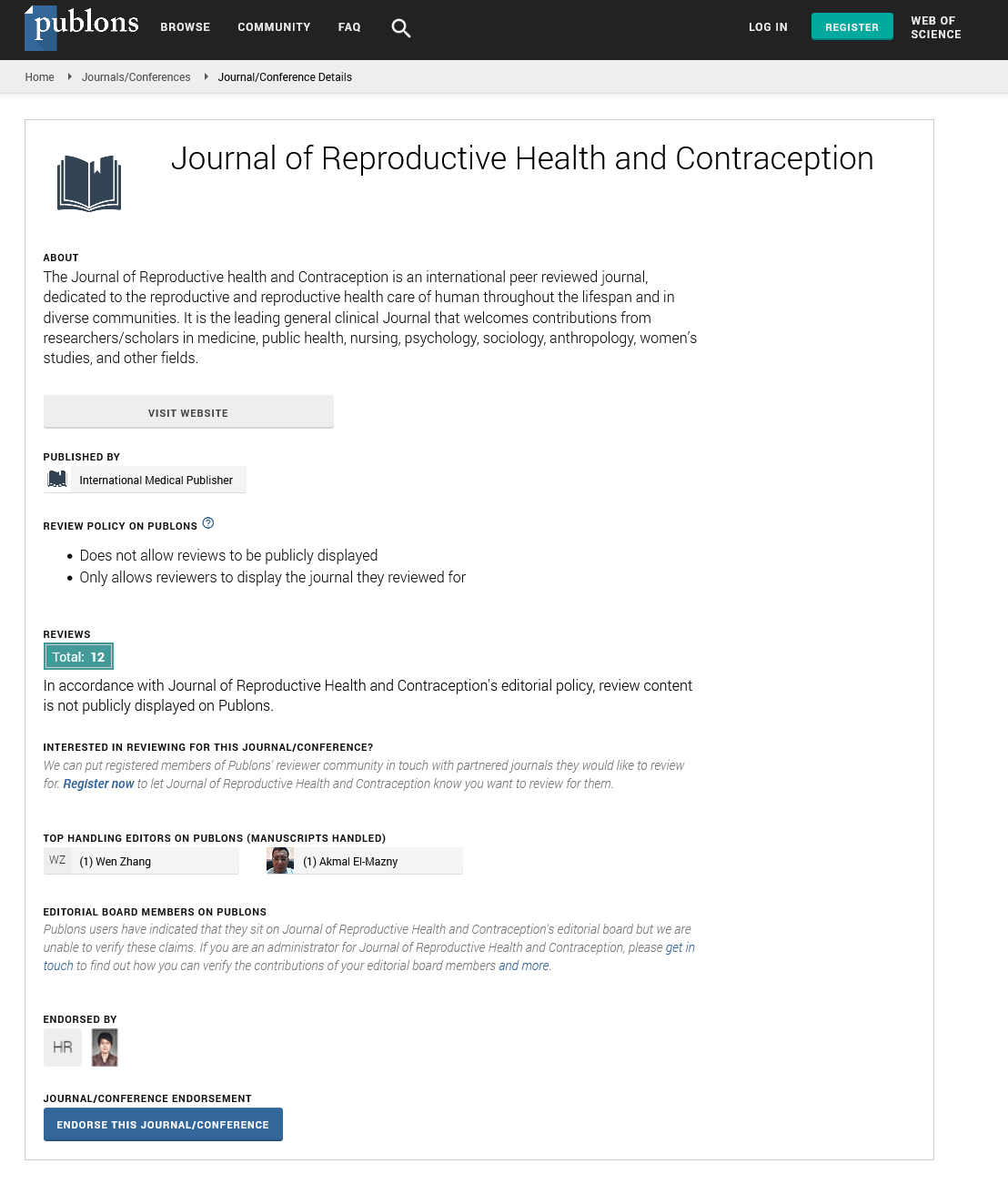ISSN : 2471-9749
Journal of Reproductive Health and Contraception
Psychosocial predictors of psychological health among pregnant women and their infantsâ birth weight
International Congress on Midwifery and Maternal Health
October 13, 2022 | Webinar
Najma Iqbal Malik
University of Sargodha, Pakistan
ScientificTracks Abstracts: J Contracept Stud
Abstract
For many women, pregnancy is a natural and joyful event. The vast majority of women will be pregnant at least once in their lives and the realization that she is pregnant is generally accompanied by a sense of achievement and excitement. At the same time, women encounter physical, psychological, social, and cultural role changes. Pregnancy and the process of becoming parents entails a major life transition which may encompass vulnerable periods for mental health problems. In some women there may be a psychological setback which is manifested as depression, anxiety, tension and such other emotional disturbances. The present study aimed to investigate the psychosocial predictors of psychological health among pregnant women and their infants’ birth weight. The State-Trait Inventory for Cognitive and Somatic Anxiety (Ree, 2008), Pain Catastrophizing Scale (Sullivan, Bishop, Pivik, 1995), Relationship Assessment Scale (Hendrick, 1988) and Childbirth Attitudes Questionnaire (Lowe, 2000) were administered along with Karachi Domestic Violence Screening Scale (Hassan & Malik, 2009), Multidimensional Scale of Perceived Social Support (Batool, 2012) and Pakistan Anxiety and Depression Questionnaire (Mumford, Ayub, Karim, Izhar, Asif, & Bavington, 2005) to a sample of 136 pregnant women. Results showed that anxiety proneness was positively correlated with childbirth fear and depression but they were not related with infants’ birth weight. Pain catastrophizing and Domestic violence were positively correlated with childbirth fear and depression whereas they were negatively correlated with infants’ birth. Marital satisfaction and social support were negatively correlated with childbirth fear and depression and positively correlated with infants’ birth weight. Regression analysis revealed that anxiety proneness was the significant predictor of high childbirth fear and depression. Pain catastrophizing and Domestic violence were significant predictor of high childbirth fear and depression whereas, they predicted low infants’ birth weight. Marital satisfaction and social support were significant predictor of low childbirth fear and depression whereas, they were positive predictors of infants’ birth weight.
Biography
Najma I Malik has her expertise in evaluation and passion for improving health and wellbeing through counseling services. Her services for first aid mental health during COVISD-19 were recognized on the national level and her contribution in uplift of mental and well-being of the general public and mental health practitioners through the energy management plan creates new pathways for improving healthcare.
Google Scholar citation report
Citations : 201
Journal of Reproductive Health and Contraception received 201 citations as per Google Scholar report
Journal of Reproductive Health and Contraception peer review process verified at publons
Abstracted/Indexed in
- Google Scholar
- China National Knowledge Infrastructure (CNKI)
- WorldCat
- Publons
Open Access Journals
- Aquaculture & Veterinary Science
- Chemistry & Chemical Sciences
- Clinical Sciences
- Engineering
- General Science
- Genetics & Molecular Biology
- Health Care & Nursing
- Immunology & Microbiology
- Materials Science
- Mathematics & Physics
- Medical Sciences
- Neurology & Psychiatry
- Oncology & Cancer Science
- Pharmaceutical Sciences
